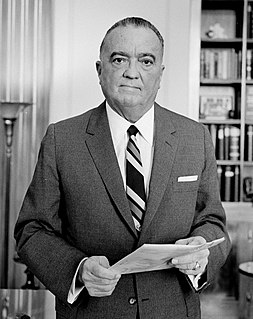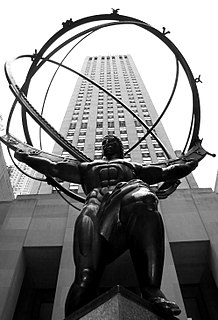A Quote by Mike Gallagher
Right and wrong are not relative terms. There are fundamental truths. Evil flourishes, but good men continue to battle it - and win.
Related Quotes
For the first time in history, the rational and the good are fully armed in the battle against evil. Here we finally find the answer to our paradox; now we can understand the nature of the social power held by evil. Ultimately, the evil, the irrational, truly has no power. The evil men’s control of morality is transient; it lives on borrowed time made possible only by the errors of the good. In time, as more honest men grasp the truth, evil’s stranglehold will be easily broken.
The Bible indicates that for three days, Jesus went into the very depths of hell. Right into the enemy's own territory. And He did battle with Satan face to face. Can you imagine what a show down that was? It was good vs. evil. Right vs. wrong. Holiness vs. filth. Here are the two most powerful forces in the universe have come together to do battle for the first time in history. But thank God. The Bible says, "Satan was no match for our Champion". This was no contest.
The actions of bad men produce only temporary evil, the actions of good men only temporary good ; and eventually the good and the evil altogether subside, are neutralized by subsequent generations, absorbed by the incessant movements of future ages. But the discoveries of great men never leave us; they are immortal; they contain those eternal truths which survive the shock of empires, outlive the struggles of rival creeds, and witness the decay of successive religions.
Let us face squarely the paradox that the world which goes to war is a world, usually genuinely desiring peace. War is the outcome, not mainly of evil intentions, but on the whole of good intentions which miscarry or are frustrated. It is made not usually by evil men knowing themselves to be wrong, but is the outcome of policies pursued by good men usually passionately convinced that they are right.
There's nothing "wrong" with anything. "Wrong" is a relative term, indicating the opposite of that which you call "right." Yet, what is "right"? Can you be truly objective in these matters? Or are "right" and "wrong" simply descriptions overlaid on events and circumstances by you, out of your decision about them?
The rifle itself has no moral stature, since it has no will of its own. Naturally, it may be used by evil men for evil purposes, but there are more good men than evil, and while the latter cannot be persuaded to the path of righteousness by propaganda, they can certainly be corrected by good men with rifles.
I take facts about reasons to be fundamental in two ways. First, I believe that facts about reasons are not reducible to or analyzable in terms of facts of other kind, such as facts about the natural world. Second, I believe that reasons are the fundamental elements of the normative domain, and other normative notions, such as goodness and moral right and wrong can be explained in terms of reasons.



































